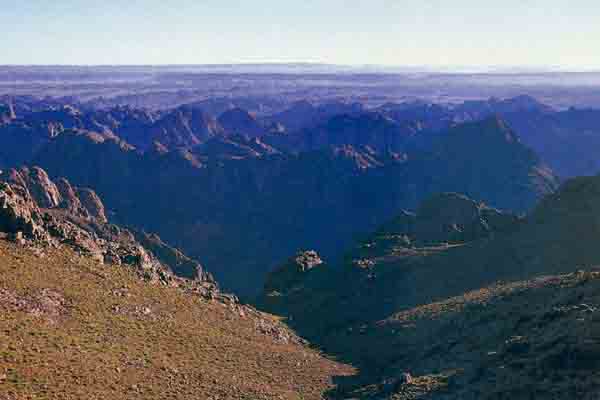Image Details

Israel Finkelstein
“Great and terrible,” the vast wilderness of Sinai described in Deuteronomy 8:15 has changed little in the millennia since the Exodus. Jebel Katarina appears in the foreground as a sunlit slope, left, and a shadowed expanse, right. A sharp pinnacle of Jebel Musa rises at the right, immediately beyond Jebel Katarina’s darkened mass. Extending to the left from Jebel Musa are the rugged peaks of Jebel Sufsafeh, which is a long extension, or shoulder, of Jebel Musa.
The authors suggest that the non-porous granite of these mountains—perhaps as much as their grandeur—caused monks to find within the fertile valleys and on the peaks the features still venerated as the sites of the Exodus. Although rainfall is meager here, it all drains off the non-porous granite into the wadis, creating a rich alluvial soil that permits agriculture that would otherwise be impossible in most of the Sinai wilderness.
